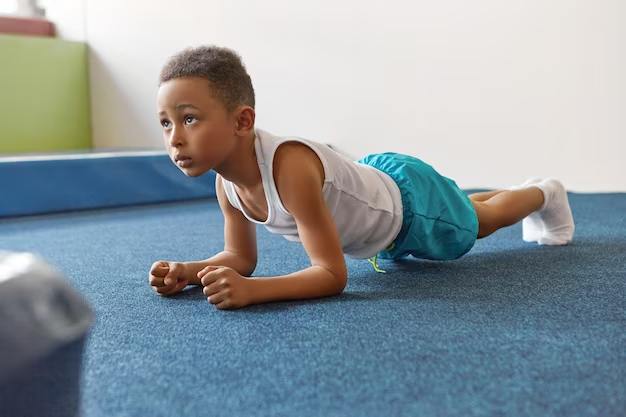In recent years, the importance of physical exercise in promoting mental health has gained recognition worldwide. South Africa, like many countries, is grappling with the challenges of mental health issues among its children and adolescents. Incorporating regular exercise into the lives of South African children can have significant positive impacts on their mental well-being, providing an avenue for stress relief, emotional regulation, and overall improved mental health.
Childhood and adolescence are critical periods for cognitive, emotional, and social development. However, various factors such as academic pressures, social challenges, and exposure to technology can contribute to stress, anxiety, and depression among South African children. Engaging in physical exercise has proven to be an effective strategy in mitigating these mental health challenges.
Exercise has been shown to stimulate the release of endorphins, often referred to as “feel-good” hormones, in the brain. These endorphins help alleviate stress and enhance mood, leading to reduced symptoms of anxiety and depression. Additionally, regular physical activity increases blood flow to the brain, improving cognitive function and memory, which can positively impact academic performance and overall well-being.
Participating in sports or engaging in structured physical activities also offers opportunities for social interaction and the development of important life skills. Team sports, for instance, foster teamwork, cooperation, and communication among children, promoting a sense of belonging and social integration. These experiences can be particularly valuable for children who may feel isolated or marginalized, strengthening their self-esteem and resilience.
South Africa, with its diverse landscapes and favorable climate, offers a conducive environment for various outdoor activities. Encouraging children to engage in outdoor play, such as cycling, swimming, or exploring nature, not only promotes physical health but also provides opportunities for exposure to natural environments, which have been linked to improved mental well-being.
Unfortunately, children in South Africa, especially those from low-income communities, often face barriers to accessing safe and structured physical activities. Limited resources, lack of facilities, and safety concerns can hinder children’s ability to engage in regular exercise. To address these challenges, it is crucial for the government, educational institutions, and communities to work together to create safe spaces and provide affordable or free opportunities for physical activity. This could involve refurbishing existing facilities, promoting community sports programs, and incorporating physical education into school curricula.
Moreover, parents and caregivers play a vital role in instilling a culture of exercise in children’s lives. Encouraging and actively participating in physical activities with children can have numerous benefits. Family outings to parks, nature reserves, or recreational centers not only promote physical fitness but also provide opportunities for bonding and quality time together, nurturing the overall well-being of children.
Educating parents, teachers, and health professionals about the positive impact of exercise on mental health is essential. Raising awareness about the importance of physical activity in supporting children’s mental well-being can lead to a shift in societal attitudes and behaviors. This can be achieved through public health campaigns, workshops, and collaborations between schools, healthcare providers, and community organizations.
In conclusion, incorporating regular exercise into the lives of South African children can have profound positive effects on their mental health. By reducing stress, promoting emotional well-being, and providing opportunities for social interaction, exercise can be a valuable tool in improving the overall mental well-being of children. It is imperative that stakeholders across the country prioritize the provision of safe and accessible opportunities for physical activity, ensuring that all children have the chance to experience the mental health benefits that exercise can offer.










